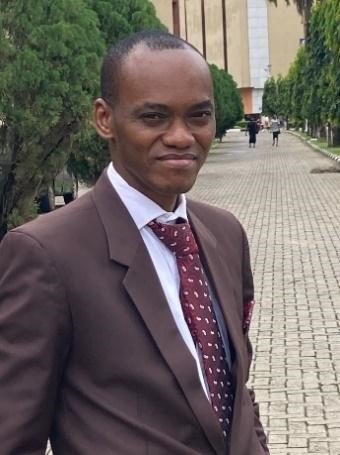Call for Book Chapters
Development Economics: Global Perspectives and Contemporary Challenges
Proposed Book Preview
This book provides a thorough examination of development economics, combining theoretical frameworks with practical applications and case studies from across the developing world. Designed for academicians, researchers, advanced students and policy makers, it emphasizes data-driven analysis, policy evaluation, and real-world problem-solving. The text incorporates contemporary challenges facing developing nations while providing analytical tools and methodological approaches for understanding and addressing these issues.
Book Chapter Overview
This section establishes the theoretical and conceptual groundwork for understanding economic development, exploring fundamental concepts, measurement approaches, and classical theories while introducing students to the complexities of development challenges.
Chapter 1: Understanding and Measuring Economic Development
- Concepts and definitions of development
- Historical perspectives on economic development
- Contemporary approaches to development thinking
- Economic indicators and their limitations
- Human Development Index and alternative measures
- Data analysis and interpretation in development contexts
Chapter 2: Theories and Characteristics of Developing Economies
- Classical development theories
- Structuralist and dependency theories
- Modern growth theories and their applications
- Structural features of underdevelopment
- Common challenges and constraints
- Developmental bottlenecks and barriers
This section delves into the interconnected challenges of promoting growth while addressing inequality, poverty, and human capital development.
Chapter 3: Economic Growth, Poverty, and Inequality
- Determinants of economic growth
- Growth patterns in developing countries
- Growth strategies and policy implications
- Conceptualizing and measuring poverty
- Multidimensional poverty approaches
- Income and wealth distribution
- Policy approaches to reducing inequality
Chapter 4: Human Capital and Labor Markets
- Education, skills, and productivity
- Healthcare and economic development
- Labor markets and employment dynamics in developing countries
This section focuses on the role of institutions, policies, and governance in shaping development outcomes.
Chapter 5: Institutional Frameworks, Governance, and Public Finance
- Role of institutions in development
- Governance and economic performance
- Corruption and development challenges
- Fiscal policy and development
- Tax systems in developing countries
- Public expenditure management
Chapter 6: International Finance, Trade, and Development
- Global financial architecture
- Foreign aid and debt management
- International financial institutions
- International trade theory and policy
- Global value chains
- Regional integration and development
This section examines key economic sectors and their roles in the development process, providing detailed analysis of sector-specific challenges and opportunities.
Chapter 7: Agricultural and Rural Development
- Agriculture in developing economies
- Rural development strategies
- Agricultural policy and food security
Chapter 8: Industrialization and Services Sector Development
- Industrialization strategies
- Manufacturing sector development
- Technology, innovation, and industrial policy
- Role of services in economic development
- Financial sector development
- Digital economy and transformation
Chapter 9: Infrastructure, Energy, and Transportation
- Physical infrastructure needs
- Energy sector development
- Transportation and communication in development
This section introduces advanced empirical methods in development economics and examines successful development stories from around the world.
Chapter 10: Empirical Methods in Development Economics
- Randomized Control Trials (RCTs) in development
- Impact evaluation techniques
- Statistical techniques for policy evaluation
- Hands-on applications with real data
Chapter 11: Development Success Stories and Lessons
- China's economic transformation
- Japan and the Asian Tigers
- Development lessons from the USA, EU, and BRICS
- India's growth story
This section addresses current and emerging challenges facing developing countries, including sustainability, urbanization, and technological change.
Chapter 12: Environmental Sustainability and Climate Change
- Climate change and development
- Green growth strategies
- Environmental policy frameworks
Chapter 13: Urbanization and Development
- Urban growth challenges
- Urban planning and management
- Rural-urban linkages
Chapter 14: Technology, Innovation, and Digital Transformation
- Global development trends and forecasts
- Emerging development paradigms
- Innovation in development policy
- Challenges and opportunities in the digital age
- Digital transformation in development
- Innovation systems and technology policy
- The role of AI and big data in development
Chapter 15: Crisis Management, Resilience, and Sustainable Development Goals
- Crisis response and economic resilience
- The role of social safety nets
- Achieving the Sustainable Development Goals (SDGs)
Chapter 16: The Future of Development Economics
- Case studies from diverse developing countries
- Data analysis exercises using real-world data
- Policy analysis frameworks
- End-of-chapter problems and discussion questions
- Contemporary development debates
- Research methodology guides
- Online resources and data links
- Advanced students in development studies and economics
- Development practitioners and policymakers
- Researchers in development economics
Editorial Team

Dr. Joseph Phiri
Head of Macroeconomics Unit, Zambia Institute for Policy Analysis and Research (ZIPAR), and Academician at the University of Zambia’s Graduate School of Business

Associate Prof. Neema Kumburu
Associate Professor of Public Policy and Administration at the Moshi Co-operative University (MoCU), Tanzania

Prof. Evans Osabuohien
Professor of Economics at Covenant University and Founding Chair of DIaDeRC
About the Editors
Prof. Kumburu has experience in training for short, long, and tailor-made programmes. She also has expertise in strategic planning and curriculum development, including the Master of Business Management and Human Resource Management curricula. Some of her current research projects include: Building Socio-Hydrological Resilience for Inclusion: The Experience of Co-operatives in Tanzania, Disaster Economic Vulnerability and Recovery Programmes: Experience from Tanzania, Women Roadside Vegetable Selling in Kilimanjaro: The Relationship Between Demography, Income Generation, and Employment Creation, Women Entrepreneurs in Emerging Economies: A Case Study of Growth-Oriented Women Entrepreneurs in Moshi, Tanzania, Does Social Feminism and the Dynamic Capability Perspective Explain Attributes of Growth-Oriented Women Entrepreneurs in Moshi Municipality?, Agency Theory and the Performance of Savings and Credit Co-operative Societies (SACCOS) in Kilimanjaro Region, and Co-operatives as a Tool for Poverty Reduction and Business Promotion in Tanzania. Some of her other research projects include: Do Personal Values Influence Research Self-Efficacy Among Academics in Public Universities in Tanzania? She was also engaged in the Sustainable Business and Employability through HEIs’ Innovative Pedagogy project, supported by the Ministry for Foreign Affairs of Finland. In this capacity, she successfully developed gender and special needs policies to address existing imbalances by considering the different needs of both males and females and ensuring appropriate opportunities for people with special needs, thereby creating an environment that enables their full participation in academic life. She was also involved in the evaluation of the Confidence and Competence Project in Meru District, Arusha Region, as well as in the evaluation of the Promoting the Inclusion of People with Disabilities in Cocoa, Coffee, and Palm Oil Value Chains (CCP) project in Tanzania. Prof. Kumburu has published more than thirty (30) papers in internationally recognised, peer-reviewed journals. She served as Coordinator of the Centre for Co-operative Entrepreneurship and Innovation for three years, Head of the Department of Management for ten years, Deputy Faculty Dean for three years, Acting Dean for two years, and Director of the Bureau of Consultancy Services.